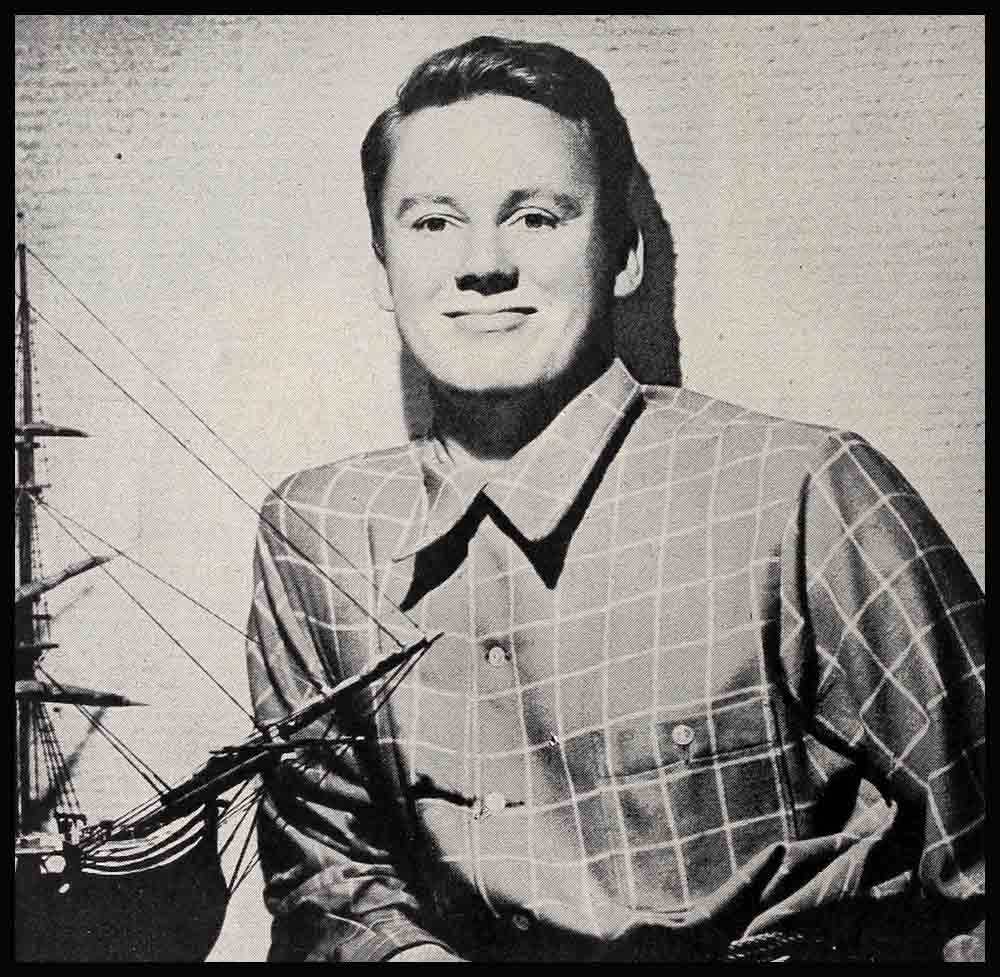
Van Johnson: “My Life”
PART I
Perhaps all of us are the sum of the people who have been kind to us, but I’m sure no one owes his whole personality and the chances he has had more completely than I owe this person now known as Van Johnson to the big heartedness of the friends I’ve made during my life.
I owe it to my parents, to my grandmother, to a girl named Lois and to another whom we shall call Clarice, which isn’t her name, but which has the same kind of elegant sound her real name has. I owe it, to some extent, to Sweden, and in a very big way to New England and the qualities for which those backgrounds stand. And I owe it in a terrific way, eventually, to a stage manager named Jerry White, to a casting director called Billy Grady, to Lucille Ball and June Havoc, and to Keenan and Evie Wynn, to Spencer Tracy and a beauty named Irene Dunne.
AUDIO BOOK
Not that I wasn’t always called Van Johnson. Charles and Loretta Johnson shied the handle of Van at me—for no reason I’ve ever been able to discover—at right after midnight of that dismal, howling rainy pre-dawn of August 25, 1916, when I came similarly howling into this world, my port of entry being Newport, Rhode Island. I was the Johnson family’s dream boy, their only child, their son. Thank heaven, they liked me for myself alone, for I can imagine the hot appearance I made with red skin to match my red hair.
Three years later, Dad and Mother separated. I was too young to comprehend it then and today I deliberately don’t try. For, like other children of divorce, I love them both. But back in Newport I grew up with Dad and Grandma, Dad’s mother, and the tidiest, tiniest, best-cooking, kindest Grandma any boy ever had. What a cook she was! What a housekeeper! To this day, the first thing I notice about any girl is not how beautiful she is, but how neat. If she can also cook, but good, my heart starts bumpety, bump.
Grandma and Dad were pretty sharp disciplinarians. Both of them had been born in Sweden. Grandma never got so she could speak English without an accent, even though she came over here while Dad was still a babe in arms, literally. In Sweden kids grow up very healthy, very happy and most distinctly toeing the mark. In New England kids grow up that way, too. Add Sweden to New England and you can see that young Master Johnson, while having all the good yellow cheese, Swedish meatballs and fine frosted cookies he could stuff into him—and he could always stuff plenty—still got away with nothing in the juvenile-delinquency department. Dad and I were always definitely father and son. By that I mean I knew exactly who was boss at all times. Yet we were also friends and the earliest memory I have is going for a trolley ride with him one Sunday afternoon and ending up on that glistening Newport beach, there to have a picnic from the shoebox of delicious food Grandma had put up for us that morning.
Perhaps here is where I had better straighten out that Newport reference. Think not that the Johnsons mingled with the Vanderbilt-Baker-Whitney-Oelrichs set that went down to the sea in diamonds along the exclusive sands of Bailey’s Beach. I would, indeed, have liked that, even that Sunday afternoon when I was five and right up until nineteen, when I left Newport. But a clam had a far better chance of getting into the Bailey’s Beach crowd than a Johnson. In fact, many clams did, but me, never.
They were what Newport—and all New England—knows as “the summer people.” They came in, floating chiffon and white flannels, with the good weather and departed, all-tweeded up, with the bad. But we were “the natives.” We stayed all year round, spring, summer, wonderful fail, icy winter. Nothing sticks to anything more tightly than a native New Englander sticking to his particular bailiwick, except a Swede, and when you mix Swede with New Englander, you get human glue.
Dad, for example, still lives in the same big, rambling brown house where I was born. It’s too big for him. It’s old-fashioned and in today’s meaning of the word, uncomfortable. Yet I know nothing would uproot him. He lives alone, completely self-sufficient. I talk to him long distance a couple of times a month, this because I’m as bad a correspondent as he is. He never approved of my going on the stage, but it tickles me that movies have won him over. He keeps scrapbooks on me, which is a laugh, too, but he likes it and naturally I like his liking it. He walks down the same streets. It’s contentment. It’s also Swedish. We Swedes have to watch a tendency against settling into pleasant ruts. I recognize this trait in me every once in a while, that and an equally typical Swedish moodiness.
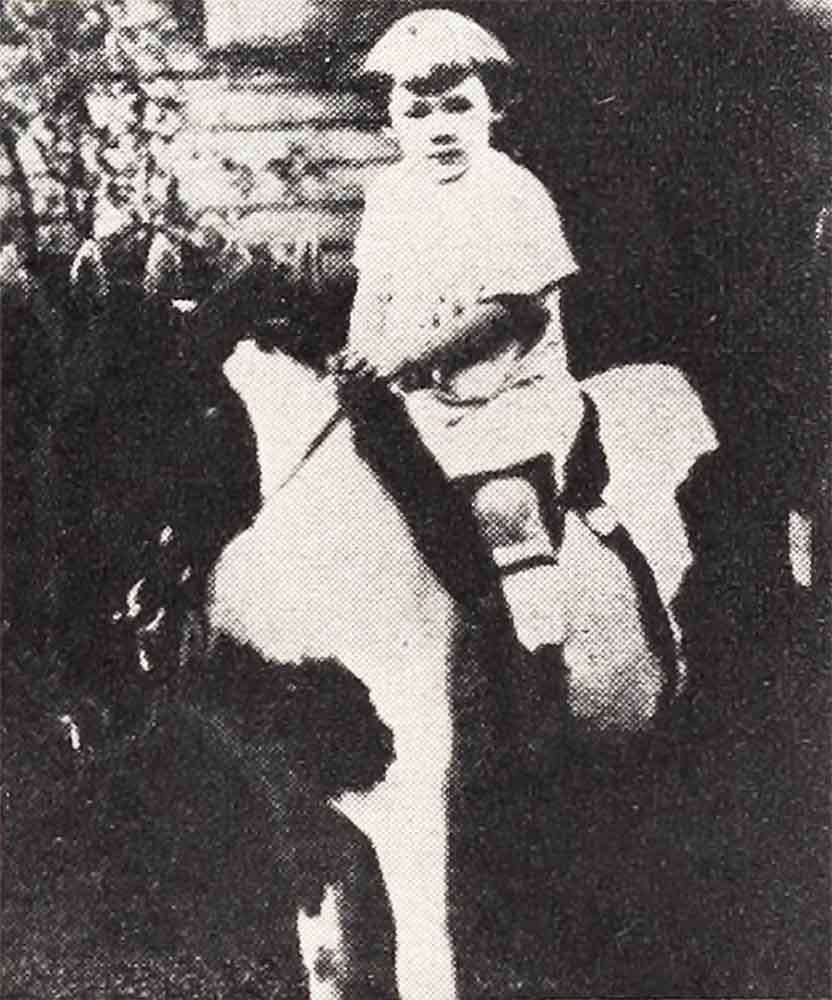
And right there come in my friends and my debt to them. Except for them and their urging, except for the bright and lovely Lois, in particular, I might still be in Newport, too, walking down those same leafy streets, breathing its sharp salt air, knowing its quiet, charming life, maybe even making Dad’s dream come true that I go to Brown University and become a lawyer.
But I wanted to act, right from the beginning. Or maybe I’d be more honest to say I wanted to show off. And did. I was the one who developed our barn and all the other kids’ barns into being our theaters. I was the one who wrote the plays. And very, very oddly, I was the one who cast me to play the leads. Other small fry might be permitted to say “ouch” or “here come the girls” or other such punch lines in my dramas, but it was Master Johnson who played the extremely dashing heroes. It was even this wonder child who became a human bullet and learned about the lamentable lack of appreciation an audience can have—if the actor doesn’t know how to put his act across!
That happened thus: One of the barns—and whose barn it was I can’t for the life of me remember—was equipped outside, up under the eaves, with one of those big block and tackles for lifting the hay into the loft. From this block and tackle dangled a rope and into this rope, fastened like a noose, daring Van Johnson, aged then approximately ten, stuck his stupid neck and announced to the assembled audience, safely though uncomfortably seated on the ground, that he would shoot himself, faster than the fastest bullet, down toward them.
Which he did. Out he stepped. Down he plummeted, and why the noose didn’t tighten more than it did and snuff him out, fate only knows. But if fate was saving me for “Two Girls And A Sailor,” or “Thirty Seconds over Tokyo,” or whatever, I’m still very grateful to it. However, my only real suffering on that occasion was hearing the audience say, as one boy, “Aw, is that all?” In other words, I was alive but the act was a flop. The ham in me almost wished it had been the other way around.

Still, that taught me nothing. I tried other ways to intrigue my audiences. I worked after school at any odd jobs, some very odd, that I could get. I carried out ashes. I mowed lawns in summer and shoveled snow in winter. I delivered groceries. I took magazine subscriptions. It wasn’t that I loved work so much, but that I loved possessions more. Dad had one rule: I could have what I wanted if I earned the price of it myself. I got a trapeze and rings and I performed on those. I enrolled myself in Dorothy Gladding’s dancing school and took up tap and adagio. I joined the Order of De Molay. I became a Boy Scout and I suspect I even dramatized tying those knots. Every day in every way I acted. I tried to get into the dramatic club at Calvert Grammar School and then at Rogers High. I chewed up plenty of their scenery at the try-outs but I could never make the grade. However, there was often the Lions Club or the Kiwanis who wanted talented, though amateur, entertainment. When they did, the first to volunteer was guess who?
I grew inevitably older and fortunately taller. By the time I entered Rogers High, I stood six feet and was nicknamed “Red.” I was also a less good student than I had been.
There were two causes for this: My dramatic ambitions and a girl. I put them in the order of their importance to me then, but both were troubling my concentration. There’s a Casino Theatre in Newport, and thither at that time came such top-flight stars as Ruth Chatterton and Alice Brady and thither went yours truly, right up into the peanut gallery, to gape downward in ecstasy. There was a little Dutch showboat that used to tie up periodically at Newport and where it docked, I docked, too. There were circuses that came in the spring and there was eternally the Bijou, our movie theater, and whenever I could manage the time and the twenty cents simultaneously, I was distinctly among those present. Between all this and my girl, lessons ran a bad third. I’d had good grades at Calvert, but at Rogers High I took the snap course, the commercial, and I had a tough time getting through even that.
We’ll call the girl Mary. She was tiny and blonde and she had been my girl all through Calvert. Each Valentine’s Day, while we both tried yearly to beat our time and receive and send more valentines than the year before, we still reserved the biggest and laciest ones for each other. On the May Day Mary was queen, she chose me for her partner. When we went to dances, come who would, we saved the first and last dances for us, together. When we went to Rogers High, we became known as “the best-known couple in school.” I don’t believe we ever said so in so many words but we both believed that “someday” we would be married.
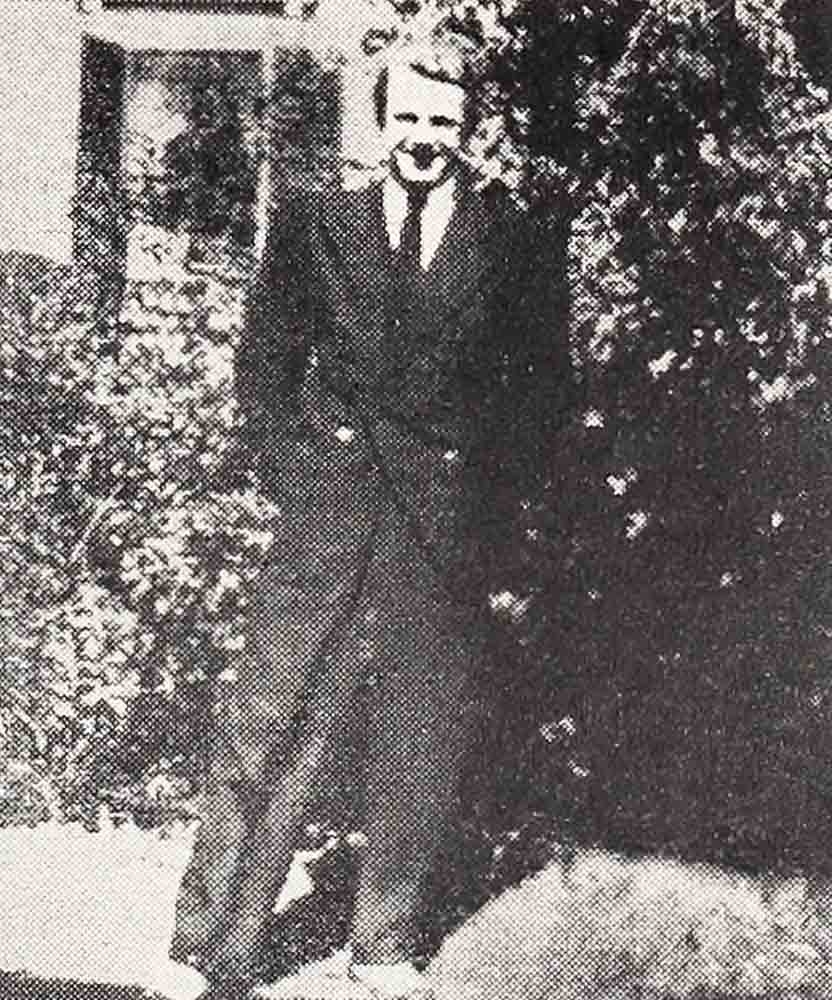
Then I finished high. It was midsummer and Dad was talking Brown for the fail. I didn’t want that. I didn’t know what I wanted, actually; something shadowy, dreamy and dramatic. Plus, immediately, I wanted some spending money. I learned early that there was only one way to get it—go out and earn it. How I was going to get at those big ambitions, I didn’t know.
I looked for a job. I couldn’t get one singing. I couldn’t get one dancing. I finally got one frying—frying clams in a little roadside place catering to the summer people and called The Barnacle. Salary, $15 a week and all the clams you could eat—and may I never see another one!
Here was wealth! Fifteen bucks all my own, every week, plus clams. I wanted more of life, but I felt I couldn’t expect more. After all, this was luxury. But there was more. For there was Lois—and the excitement, the courage and the happiness she brought me.
The first morning I reported for work at The Barnacle, I looked up and saw this red-headed beauty smiling at me. She started to introduce herself, but that wasn’t necessary. I knew who she was. I’d known her all my life, by way of the society columns of the local paper. Oh, Lois was a “native” even as I, but what a glamorous native. Her mother ran and owned the Newport weekly newspaper (to which I still subscribe).
She was the sort of daughter whose parents took her on trips to Europe. She was the kind of girl who had orchestras to play for her parties, who got her clothes in New York, who had a brand new Ford with white side-wall tires to run around in, and who dated sophs and even seniors, from Harvard, Yale and Princeton. Along with all that and her beauty, she had brains and courage. Distinctly a very super girl.
So I nearly fell flat on my face when she told me she was going to manage The Barnacle, while I did the frying. For she was that kind of a girl, too. She felt like working and she didn’t want to work at one of those accepted “ladylike” jobs where work is all you get out of it. She was so much the lady she could have run a poolroom without losing caste. As a restaurant manager, she was a whiz.
Don’t ask me, with a girl like that around, how many days June had, or July, or August. Don’t ask me how many thousand clams I fried, or how high the temperature got the hottest day, or on what date the fail winds started blowing. I only recall our driving around, when our evening’s work was done, in that brand-new dazzling luxurious Ford of hers. I remember my daring at taking Lois into such de luxe places as the Skoal Room at the Viking, so top-drawer I’d never had the nerve to venture there before. once we drove all the way to Boston and dined at the lordly Copley and there were scores and scores of evenings we drove down to the beach places to dance.
Lois’s hair shone in any light. Lois’s mouth curved in a smile of liveliest humor. I saw the most charming qualities in her and I saw many things through her eyes. It was at her house overlooking Naragansett Bay that for the first time I saw a formal dinner table set, and later ate at same.
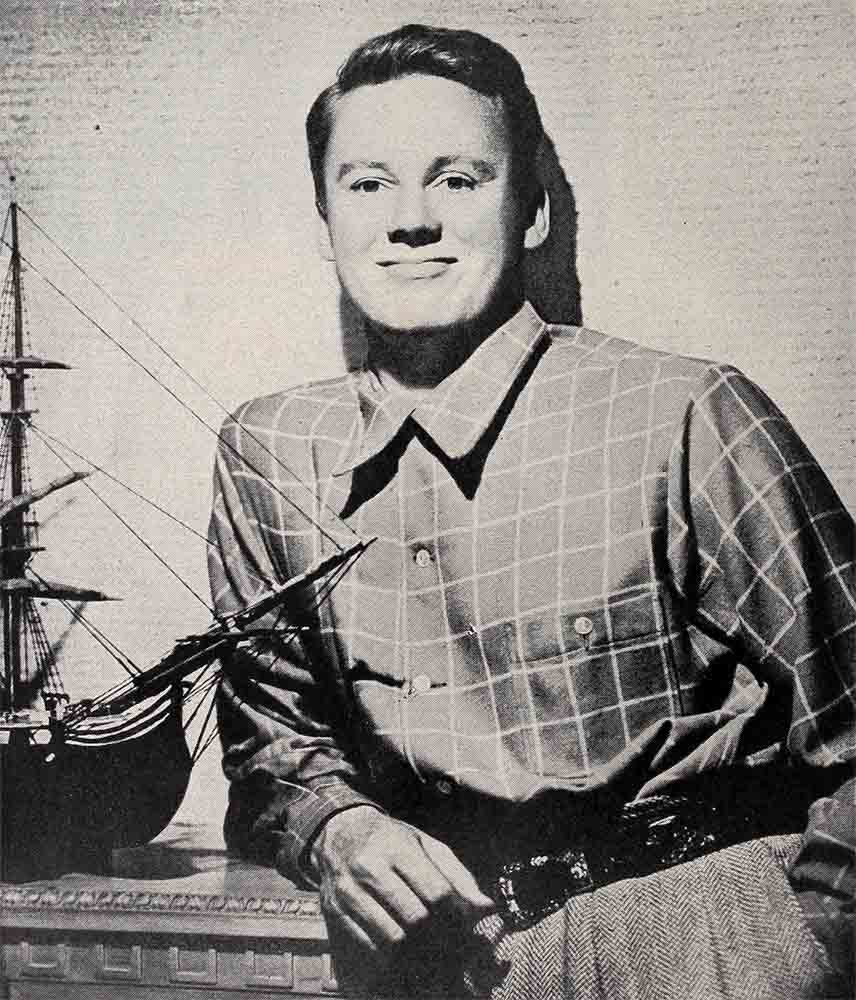
And we talked about me. I talked about me, and Lois, bless her, talked about me and the subject never bored us. It was Lois who discovered that “As, Thousands Cheer” was going to play Boston and who made me go up there to see if I couldn’t break into it. (I was naive enough to go, too, go around to the stage door, carrying my dancing shoes, just in case they wanted me to go right on the stage that night. They didn’t, but they sure laughed hard when I suggested it.) It was Lois who said, over and over and over, “You’ve got to go to New York, Van. Newport is wonderful, but not for somebody who wants to break into show business. You must go to Broadway, Van.”
There she was, a girl like that, a beautiful girl, with brains, beauty and breeding, a girl who knew so much more than I, and had seen so much more than I, and she believed in me! It gave me a faith in myself I never could have attained otherwise. I couldn’t make the high-school dramatic society, but if a girl like this had faith in me, then she must be right and they must be wrong!
The fail winds were beginning to blow in across the Bay. The summer people began leaving. The Barnacle was due to close for the winter. I went to Dad and told him I wasn’t going to Brown. Dad was opposed to my going on the stage, but agreed to let me try. If I could support myself, I could live my own life. If I failed, I knew there was, at least, home to come back to.
Lois and I didn’t say good-by. We knew this was only au revoir. Life, glowing, glorious, rich with promise, lay ahead of us. I got a straw suitcase and packed my two changes of underwear, my four pairs of socks, my four ties and the brown pants that matched the brown coat I was going to wear with my white flannels, when I invaded the Big Town. I wore my straw hat, too. That was my big snappy outfit. When I wanted to be conservative, I wore the brown coat and pants together. Made two outfits, you understand.
I landed in New York. No other fellow was wearing a straw kelly. I saw only felts. I saw no other straw suitcases being carried, but only leather ones, very elegant.
It was mid-September, the end of summer, a sad time always. The fail was closing in. There were no wet leaves on the pavements of New York, but the rain was there, coming down in cold, slanting discomfort. There was the loneliness and chill in the air and I didn’t know a soul.
I dug down in the pocket of my brown coat for my mother’s address. She lived in Sheepshead Bay and she had written me I could stay with her till I got started. I didn’t know where Sheepshead Bay was but, regardless, it meant affection and a roof over my head.
So who was afraid of New York on that September night? Not me (it says here)! I squared my shoulders and headed for the subway.
After all, it wasn’t as if I were broke. I had five dollars and Lois believed in me and as soon as I got a big role on Broadway I could ask her to become my bride.
I didn’t know then that there was to be a girl called Clarice, and Lois didn’t know there was to be a guy called Frank.
He had his dreams—and his courage. Watch for the conclusion of Van Johnson’s own story—next month.
It is a quote. PHOTOPLAY MAGAZINE FEBRUARY 1945
AUDIO BOOK


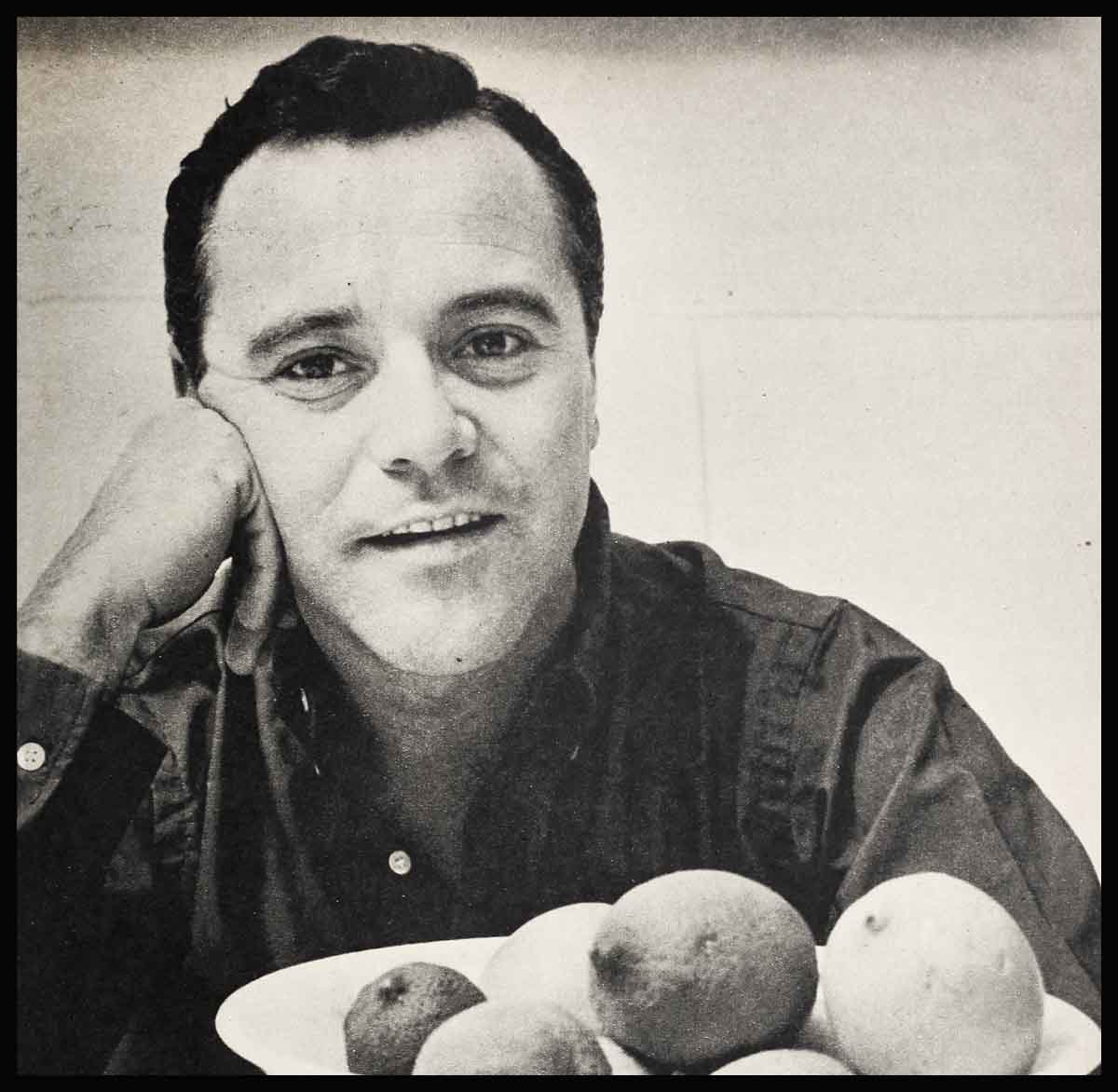


No Comments